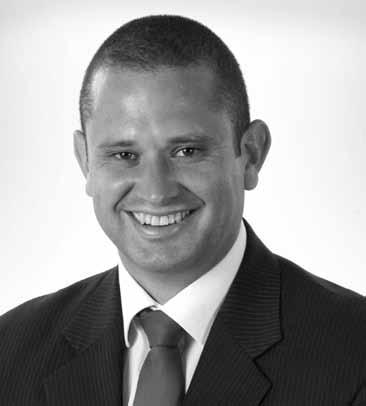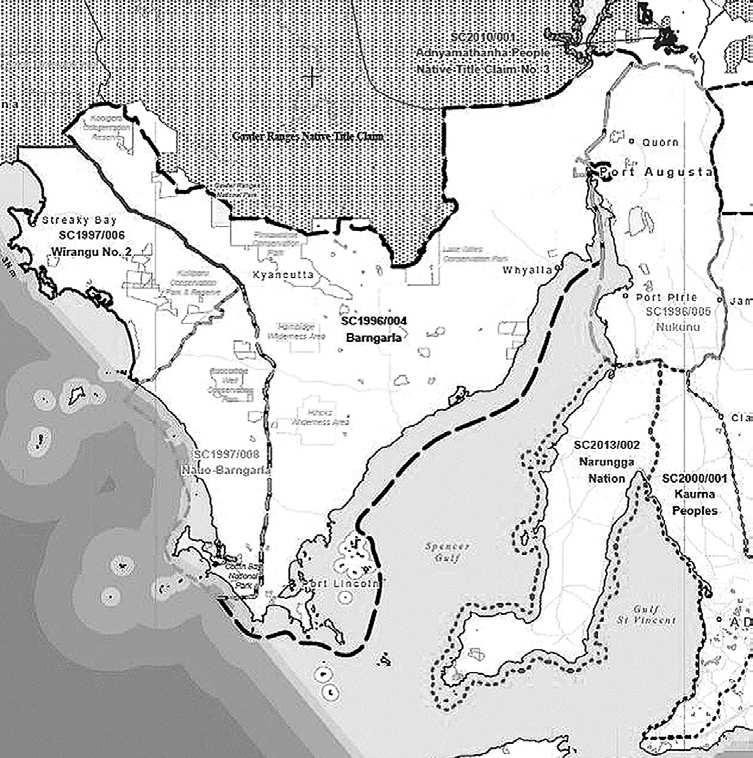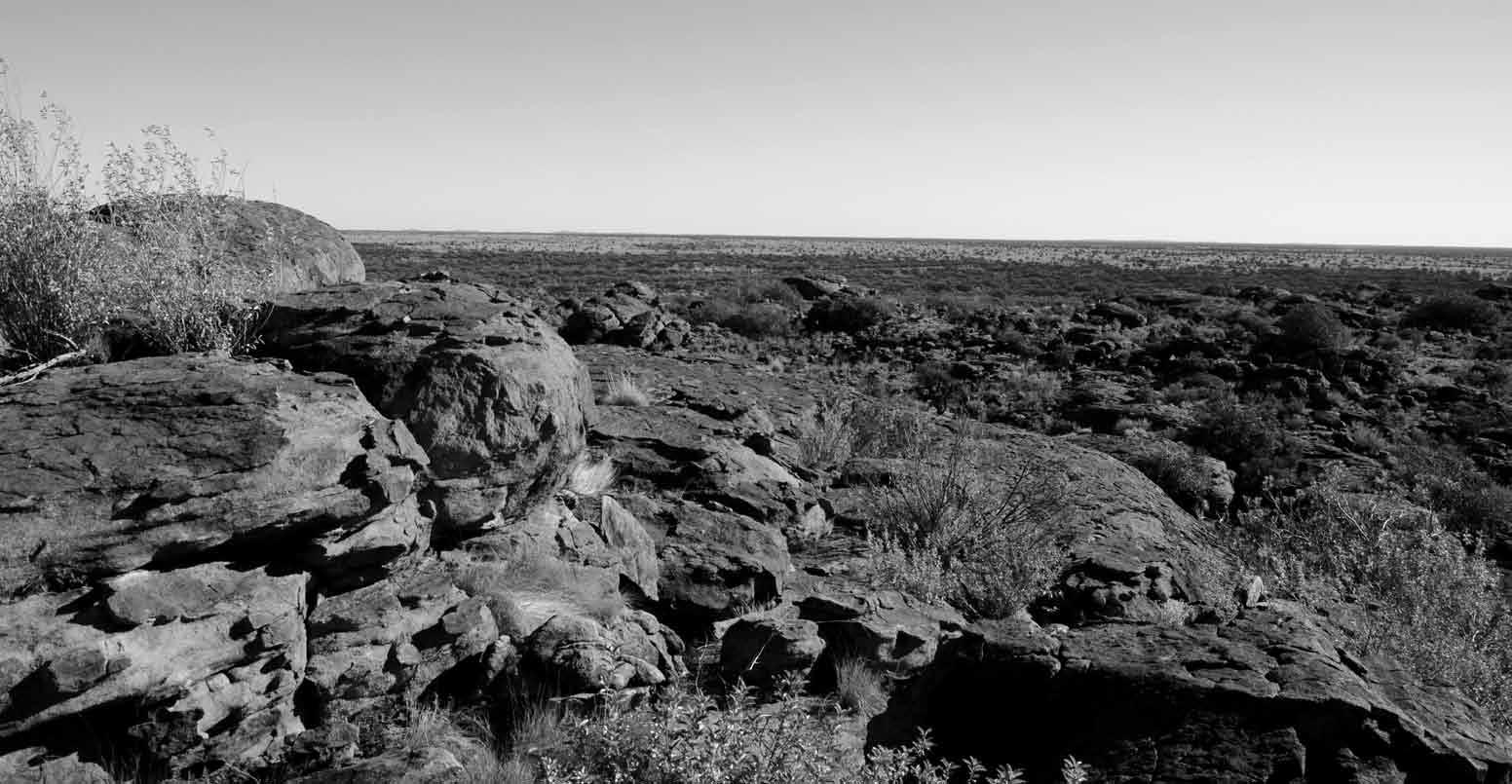
9 minute read
Inside: New Minister for Aboriginal Affairs and Reconciliation
New Minister for Aboriginal Af fairs and Reconciliation – Kyam Maher
As part of Premier Jay Weatherill’s cabinet reshuffle Hon. Kyam Maher MLC is South Australia’s new Minister for Aboriginal Affairs and Reconciliation, replacing Hon. Ian Hunter MLC.
Advertisement
Minister Maher said he is “exceptionally proud… [and] very honoured to serve in this area”.The Minister acknowledged the breadth of the position and revealed some of the direction he foresees for policy concerning South Australian Aboriginals. In order to understand the political force that is Kyam Maher, it is necessary to turn to his early years. Mr. Maher was born in Papua New Guinea to Jim and Viv Maher. He spent the earliest parts of his childhood in Littlehampton, before moving to Mount Gambier. Mr. Maher attributes his strong value system to both his parents and the community ties he grew up with in rural South Australia. Both Mr. Maher’s parents are former State Labour Party candidates. Additionally, many members of his extended family have ties within the party too. Mr. Maher has said his natural inclination toward progressive politics began with his parents and continues into his political career to this day. Mr. Maher has been consistently open about his Aboriginal heritage through his maternal side. He said this connection “has not played an active role in…[his]… life”, but he is proud to be linked to “the oldest living culture in the world”. Before acquiring his current portfolio, Mr. Maher held several other parliamentary positions. Most notably, in 2002 he was appointed Chief of Staff to Terry Roberts, who at the time held the portfolios of Regional Affairs, Aboriginal Affairs and Correctional Services. His first job posting after completing his degrees of economics and law at The University of Adelaide, was working in a legal capacity with the Crown Solicitors Office. Mr. Maher’s passion for Aboriginal Affairs policy has carried through into other parts of his life. Most notably, he served as a board member of Reconciliation Australia for the twelve months prior to his appointment as Minister. Mr. Maher has stated that he believes the ‘reconciliation’ part of his portfolio is very important. He said he is determined to put his “own stamp on the Aboriginal Affairs and Reconciliation Portfolio”.
Mr. Maher’s early plans for the portfolio include his desire to visit the APY Lands as soon as possible. He believes it is imperative that both his department and the communities meet to discuss the challenges and initiatives that need to be taken in this area.
Our new South Australian Minister for Aboriginal Affairs and Reconciliation wants to work toward “understanding [the relationship] between Aboriginal and non-Aboriginal South Australians, about the shared history we have”. In 2012 Kyam Maher delivered his first speech to the South Australian Parliament. Mr. Maher opened with an explanation of why he entered politics. Mr. Maher’s answer was simple, and spoke of his rural upbringing. Mr. Maher desired “to see everyone in our community having the opportunity to share in the benefits of living in South Australia”.
Mr. Maher spoke about the profound affect working in Aboriginal Affairs previously had imparted on him. In his speech, he acknowledged the disadvantages many Aboriginal Australians continue to face in modern Australia. Mr Maher chastised this state of affairs, commenting “it makes us less of a nation when the Traditional Owners of this country endure some of the worst levels of disadvantage, poverty and dislocation that occur today”. When viewed with hindsight, Mr. Maher’s passed conviction that Aboriginal Affairs “is an area that is so important we need to make every effort to keep making a difference”, seems somewhat prophetic considering Mr. Maher’s recent acquisition. The Minister recently made the comment that “once you start working in Aboriginal Affairs you never stop working in that area”. For Mr Maher, this work began well before his appointment as Minister. It remains to be seen if Minister Maher will be driven by the same beliefs he held on Aboriginal Australia when he delivered his first speech in 2012 in the South Australian Parliament. It is hoped he does indeed make every effort to keep making a difference for South Australian Aboriginal communities.
Minister Maher.
Barngarla People’s application for native title determined
Continued from page 1
“It’s a fantastic result for the Barngarla people which gives them certainty in moving forward enabling them to plan with confidence their future economic, social and cultural aspirations. I congratulate all the Barngarla people on their success,” said Mr Thomas.
Barngarla people have praised the Federal Court’s decision to grant native title over large areas of the Eyre Peninsula, giving special mention to those who worked tirelessly on the claim over the past 18 years.

Royal Commission to look at SA’s nuclear industry potential
The State government has launched a Royal Commission to consider what role South Australia could play in the fuel cycle for the use of nuclear energy. After a brief consultation period, the Royal Commission commenced on 19 March with former Governor Kevin Scarce appointed as Royal Commissioner, and the release of the final Terms of Reference.
The Commission, the first of its kind in Australia, will have until May 2016 to provide a final report to the State Government and will look into the production of nuclear energy, as well as the enrichment of uranium and waste storage. It will not look into withdrawing from uranium mining or nuclear use for military/defence purposes. Premier Jay Weatherill said more than 1000 submissions were received from the community and industry during the initial four weeks of consultation, helping to shape the final Terms of Reference.
This is “a significant moment in our State’s history – the commencement of the most thorough investigation into the nuclear fuel cycle and its feasibility in South Australia,” he said.
“Minor changes have been made to the draft Terms of Reference following the second round of consultation including placing further emphasis on learning lessons from past experiences in regards to environmental impacts.
“A further change seeks to address the potential for the development of related industries and any adverse impact on other sectors,” said Mr Weatherill.
A website for the Royal Commission has been established to provide relevant updates and information to the public www.nuclearrc.sa.gov.au.
Native title compensation claim filed in state’s far north west

On 27 February, the Tjayiwara Unmuru native title holders filed South Australia’s second native title compensation application in the Federal Court, following authorisation of the application by the native title holders at a meeting in Alice Springs on 23 February.
The application seeks compensation from the State of South Australian for the portion of the Stuart Highway that traverses the Tjayiwara Unmuru determination area and a digital radio concentrator in the State’s far north-west.
Compensation is sought pursuant to the Native Title Act 1993 (Cth) on the basis that these acts occurred after the commencement of the Racial Discrimination Act 1975 (Cth). These acts ‘extinguished’ native title. Pursuant to the Native Title Act, the native title holders are entitled to compensation. Importantly, native title holders are entitled to ‘just terms’ compensation. On 4 March 2015, his Honour Justice Mansfield adjourned the compensation application to allow the parties to progress the matter. The compensation application will now proceed to a formal notification process by the National Native Title Tribunal.
South Australia’s first native title compensation application – in De Rose Hill – was successfully resolved through the country’s first native title compensation consent determination in 2012.
In 2014, several Aboriginal Corporations were delegated Ministerial powers under the Aboriginal Heritage Act 1988 (SA) (the Heritage Act). Since that time, these Aboriginal Corporations have continued to facilitate projects and mining activities, while also properly protecting Aboriginal cultural heritage.
It is unlawful to damage, disturb or interfere with Aboriginal sites, objects or remains without the Minister’s prior approval. Michael Pagsanjan, South Australian Native Title Services Senior Legal Officer said “under the Heritage Act, the Minister may delegate certain powers, including the power to oversee applications from parties whose actions may interfere with Aboriginal sites, objects or remains”. To date, the Minister has delegated that power to several Aboriginal Corporations, including Yankunytjatjara Native Title Aboriginal Corporation RNTBC, De Rose Hill-Ilpalka Aboriginal Corporation RNTBC, Ngadjuri Nation Aboriginal Corporation and Yandruwandha Yawarrawarrka Traditional Land Owners Aboriginal Corporation. “This means that, if an application is made, these Corporations will stand in the shoes of the Minister to consider the application, and will need to follow the legislative procedure and rules of procedural fairness” said Mr Pagsanjan. Lloyd Roe, current Chairperson for Yandruwandha Yawarrawarrka Traditional Land Owners Aboriginal Corporation says the delegation promotes the proper management of Aboriginal Cultural Heritage.
“We are proud to carry these Ministerial responsibilities, if the need to apply under the Act ever arises. However, we continue to work with stakeholders to try and avoid that need in the first place” said Mr Roe.
Aboriginal Heritage is usually managed through agreements, including agreements made under Part 9B of the Mining Act and other agreements under section 31 of the Native Title Act and Indigenous Land Use Agreements. Amongst other things, these agreements set a procedure for Aboriginal people to check areas for Aboriginal heritage before activities take place, with the goal of companies trying to avoid such sites. “At the end of the day, it is important that Aboriginal people and companies are honest with each other and always keep lines of communication open. This way, resource exploration and production can continue while efficiently addressing risks to our cultural heritage” said Mr Roe. Energy Company, Senex Energy has been working closely with Yandruwandha Yawarrawarrka Traditional Land Owners Aboriginal Corporation (YYTLOAC); Traditional Owners of the Cooper Basin region in the North East Corner of South Australia.
A spokesperson for Senex said the company has not made an Application requiring YYTLOAC approval under the Act, and has not seen any significant impact directly as a result of delegation of Ministerial powers.
“Senex has tenements that overlap YYTLOAC land. We have worked closely together with them through early notification, Work Area Clearances and joint mitigation of potential cultural heritage risk, before commencing any activity over that land.
“Senex would always approach the Traditional Owners in the first instance, to see if an issue can be resolved with their assistance and support. If a site we have selected is very significant to the Group, we will do our best to move the project or deviate the well. If there is a significant risk to heritage being damaged, we arrange for monitors to be onsite during construction,” the Senex spokesperson said.
The most recent of several attempts to review the Heritage Act – including reviewing the delegation provisions – stalled in 2014.


